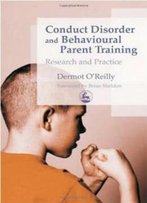
Emotional Literacy In Criminal Justice: Professional Practice With Offenders
by C. Knight /
2014 / English / PDF
959.4 KB Download
Emotions remain largely invisible in the management of criminal
justice practice. This book seeks to uncover some of the
underground emotional work of practitioners and make visible the
impact of both positive and negative emotions, which play a
crucial role in practitioner-offender relationships.
Emotions remain largely invisible in the management of criminal
justice practice. This book seeks to uncover some of the
underground emotional work of practitioners and make visible the
impact of both positive and negative emotions, which play a
crucial role in practitioner-offender relationships.
Exploring how practitioners understand, regulate and work with
emotion, Knight argues that the 'soft skills' of emotion are more
likely to achieve motivation and change in offenders than the
'hard' skills of punishment, monitoring and surveillance. The
book examines some of the gendered implications of this practice
and develops an argument for the explicit building of emotional
resources within organizations to sustain the development,
enhancement and support of emotional literacy in the
workforce.
Exploring how practitioners understand, regulate and work with
emotion, Knight argues that the 'soft skills' of emotion are more
likely to achieve motivation and change in offenders than the
'hard' skills of punishment, monitoring and surveillance. The
book examines some of the gendered implications of this practice
and develops an argument for the explicit building of emotional
resources within organizations to sustain the development,
enhancement and support of emotional literacy in the
workforce.
Using practice examples, Knight reveals how practitioners can
benefit from having an understanding of their own emotions and
how these can impact on their practice. This unique and
accessible book will be a valuable resource to practitioners
across the criminal justice sector including probation officers,
youth justice workers, police and prison officers, social
workers, policymakers and managers, as well as scholars working
within criminology, criminal justice and probation.
Using practice examples, Knight reveals how practitioners can
benefit from having an understanding of their own emotions and
how these can impact on their practice. This unique and
accessible book will be a valuable resource to practitioners
across the criminal justice sector including probation officers,
youth justice workers, police and prison officers, social
workers, policymakers and managers, as well as scholars working
within criminology, criminal justice and probation.











